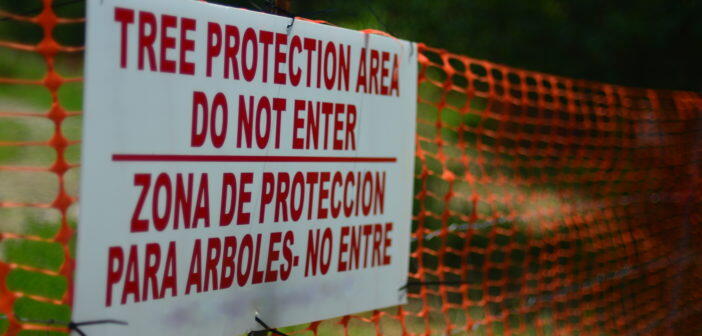The International Criminal Court (ICC) has decided to “give particular consideration” to crimes involving environmental destruction, land grabbing and illegal exploitation of natural resources, a move that acknowledges the overreaching impact of environmental offenses.
Nestled discreetly within an 18-page policy paper on case selection and prioritizationpublished Thursday, the major shift in focus signals a new era of global justice to environmental and land rights activists.
“[Thursday’s] decision by the ICC shows that the age of impunity is coming to an end,” said Gillian Caldwell, executive director of anti-corruption and environmental organization Global Witness, in a statement. “Company bosses and politicians complicit in violently seizing land, razing tropical forests or poisoning water sources could soon find themselves standing trial in the Hague alongside war criminals and dictators.”
A land-grabbing case filed in 2014 against Cambodian officials and businessmen is the first one on the docket for consideration by ICC Prosecutor Fatou Bensouda, author of the paper.
According to Global Diligence, the London-based human rights law firm representing the 10 plaintiffs in the case, Cambodia is one of the worst pictures of land seizures by a country’s ruling elite. Since 2002, it has affected an estimated 830,000 civilians and forced up to 350,000 people from their homes to “live in abject poverty,” while investors and corrupt politicians reap the rewards.
“[The shift] will not make land grabbing per se a crime, but mass forcible evictions that results from land grabbing may end up being tried as a crime against humanity,” Richard Rogers, a partner at Global Diligence, told the Guardian.
Rogers also says that clamping down on land grabbing will help with climate change, since deforestation is often a part of the seizure.
The ICC policy shift also comes on the heels of two Hague Tribunal rulings in July on the South China Sea. The first, of course, rejected China’s claim of sovereignty in the Sea. But the second condemned China for causing severe environmental damage to coral reefs as it built artificial islands to support its claim of sovereignty. This, the Court ruled, was in violation of China’s obligations to “protect and preserve rare or fragile ecosystems” according to the U.N.’s Convention on the Law of the Sea.
As the South China Sea ruling demonstrates, the new policy is “not adding new crimes,” Helen Brady, senior appeals counsel in the Office of the Prosecutor, told Agence France-Presse. “What we’re acknowledging is an emphasis, or an expanded focus by this office.”
Shifts like this, she said, as well as toward crimes against children, gender-based violence and cultural destruction, will “move the ICC to become an international criminal court for the 21st century and beyond.”
The ICC was set up under the Rome Statute to prosecute the “the world’s worst crimes where domestic courts are unwilling or unable to act,” according to the AFP. Since 2002, the court has focused on genocide, crimes against humanity, war crimes and the crime of aggression. The 139 countries that have signed the Rome Statute as well as the U.N. Security Council can bring cases before the court.
For activist groups like Global Witness or the ICE Coalition, which has been advocating for an International Court for the Environment, yesterday’s policy shift was a monumental success. Reason enough, it seems, for the ICE Coalition to post its first and only two tweets since 2010.
Source: Humanosphere











